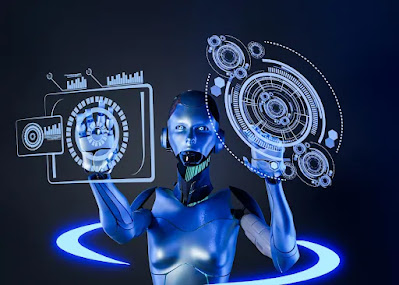One of the most important and quickly developing areas of technology in recent years has been artificial intelligence (AI). Voice-activated assistants and self-driving cars are just two examples of how AI is changing how we engage with technology.
However, there is some disagreement over whether AI belongs in the categories of science, technology, or both. This issue will be thoroughly discussed, along with the arguments for and against each viewpoint, in this article.
Let's first examine whether AI is a discipline. To explain and foresee events, science entails the methodical study and observation of the natural world. In this sense, AI is unquestionably a science because it uses scientific principles and techniques to build intelligent machines. To create algorithms that can learn from data and make choices, AI researchers employ a variety of scientific methods, such as computer vision, natural language processing, and machine learning.
Since many years ago, AI has played a significant role in scientific study, from analyzing astronomical data to forecasting the behavior of subatomic particles. To help researchers sift through massive quantities of data and find patterns and insights that might not be obvious to the human eye, artificial intelligence (AI) algorithms are being used more and more in scientific disciplines like medicine, climate modeling, and genetics.
AI is thus both a result of research and a tool that can be employed to further that knowledge.
However, some contend that rather than being a science, AI is more of a tool. The practical application of scientific information to resolve issues and produce useful goods is referred to as technology. According to this viewpoint, AI is a technology because it entails creating workable solutions for issues like speech recognition, image processing, and decision-making that arise in the real world.
From chatbots and virtual assistants to autonomous vehicles and robots, AI has been used to create a wide variety of goods and services. Additionally, AI technologies are reshaping sectors like healthcare, finance, and manufacturing, allowing more effective and efficient workflows, and enhancing consumer and business outcomes.
The fact that AI is more concerned with developing useable solutions than it is with advancing theoretical knowledge is one case against categorizing it as a science. While there is a lot of theoretical work involved in AI study, the focus is primarily on creating algorithms and applications that can be applied in the real world. AI differs from other scientific fields like physics or chemistry due to its practical emphasis.
Important Key Points
- AI is a science because it uses scientific concepts and techniques to build intelligent machines.
- In scientific disciplines like medicine, climate modeling, and genetics, AI algorithms are being used to help scholars sift through massive quantities of data and find patterns and insights that might not be obvious to the human eye.
- Because it includes the practical application of scientific knowledge to address issues in the real world and produce useful products, AI is a technology.
- From chatbots and virtual assistants to autonomous vehicles and robots, AI is used to create a broad variety of goods and services.
- As AI technologies progress, the distinctions between science and technology are becoming hazier.
- The ethical ramifications of AI's use, including worries that it will reinforce current biases and inequalities, represent one of the greatest challenges confronting the technology today.
- Many researchers and professionals are asking for more accountability and transparency in the creation and use of AI systems to allay these worries.
So, is AI a tool or a science? Both are the correct response. The systematic study and application of scientific concepts to the development of intelligent machines constitute the science of AI. It is also a technology because it entails using scientific knowledge in a practical way to address issues in the real world and produce useful goods.

Additionally, AI is an area that is rapidly developing, with new advancements and innovations appearing constantly. This indicates that the boundaries between science and technology are blending more and more in AI. A virtuous cycle of innovation is being produced as AI technologies progress and spur new scientific discoveries and breakthroughs.
Although AI has many advantages, there are some worries about how it will affect civilization. The ethical ramifications of using AI are one of the greatest problems we currently face. AI is increasingly being used to make choices that have an impact on people's lives, from healthcare to finance to criminal justice, as technology develops. There are worries that AI might reinforce current biases and inequalities or even make bad choices that affect people or society at large.
Many researchers and professionals are asking for more accountability and transparency in the creation and use of AI systems to allay these worries. This involves making sure AI systems are created with fairness and objectivity in mind, and that they go through extensive testing and validation before being used in the real world.
Finally, the argument over whether AI belongs in the category of science, technology, or both is complex. AI is a science because it uses scientific techniques and concepts to build intelligent machines.
In addition, AI is a technology because it includes the application of scientific principles in the real world to resolve issues and produce useful goods. The distinction between science and technology in AI is blending more and more as the field develops, and AI is a major force behind recent advances in science.
However, there are worries about AI's ethical implications as it is used more frequently to make choices that have an impact on people's lives. Greater transparency and accountability in the design and implementation of AI systems are required to ensure that they are used for the good of society. Additionally, researchers and industry professionals must collaborate to resolve the problems brought on by this rapidly developing field.




_11zon.png)

No comments:
Post a Comment